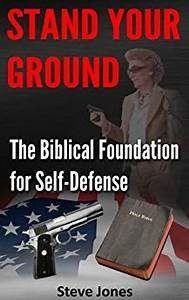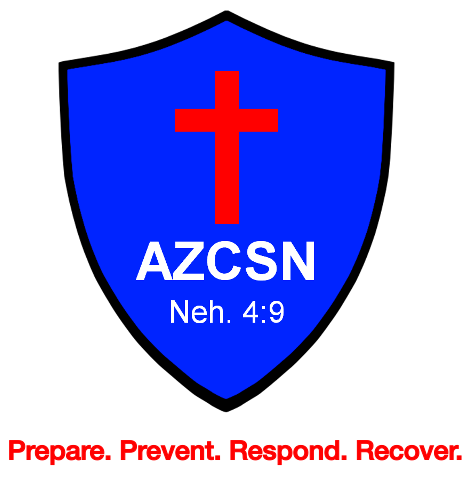 Steve Jones provides a brief Biblical Theology of self-defense in his book Stand Your Ground. Pastor Jones begins his text with a description of three different views Christians hold regarding self-defense. He points to pacifism, semi-pacifism (his term describing the belief that only government agents may use force), and intuitive guardianship (his term describing those who believe protecting their loved ones is the right thing to do). His purpose in writing this book is to move this third position “beyond intuition and on to Biblically justifiable grounds. (pg. 9)”
Steve Jones provides a brief Biblical Theology of self-defense in his book Stand Your Ground. Pastor Jones begins his text with a description of three different views Christians hold regarding self-defense. He points to pacifism, semi-pacifism (his term describing the belief that only government agents may use force), and intuitive guardianship (his term describing those who believe protecting their loved ones is the right thing to do). His purpose in writing this book is to move this third position “beyond intuition and on to Biblically justifiable grounds. (pg. 9)”
The first two parts of the text focus on the Old and New Testament Scriptures that address self-defense types of situations. Pastor Jones is careful not to stretch the context of verses, but rather using solid Biblical interpretation of the cited verses to point to an individual’s right to self-defense, including deadly force under specific circumstances. Though he clearly lays the foundation for the use of deadly force to defend yourself or others, from these Scriptures, he cautions in part three that this may not always be the best option.
Part three continues to address Matthew 5:38-39 where Jesus issued a corrective to the Pharisees and Pastor Jones concludes “Jesus’ admonition to ‘turn the other cheek’ does not preclude self-defense, but that doesn’t mean that Christians should go to the opposite extreme of looking for trouble. (pg. 35)” He provides real world examples of using wisdom to determine when it may be better to deescalate, ignore, and/or disengage from a situation rather than using force. Pastor Jones balances the use of restraint (Proverbs 19:11) with the use of force depending on the type of situation.
Stand Your Ground concludes with part four dedicated to countering potential objections to the use of force in self-defense by Bible-believing Christians. Pastor Jones addresses a variety of popular objections in both the scriptures and church history.
Overall, this is a balanced work clearly providing support for a Biblical Theology of the use of force, for self-defense in situations individuals may encounter. The author is not quick to seek out the use of force, including deadly force. Rather he clearly articulates the need for restraint and de-escalation skills while demonstrating that a Christian may defend themselves or others from harm using force, even deadly-force if necessary without violating the tenants of the Scriptures. This brief work, though only 58 pages, provides a tremendous, well thought out framework for those who struggle with their faith and the need to physically protect themselves and their loved ones.
